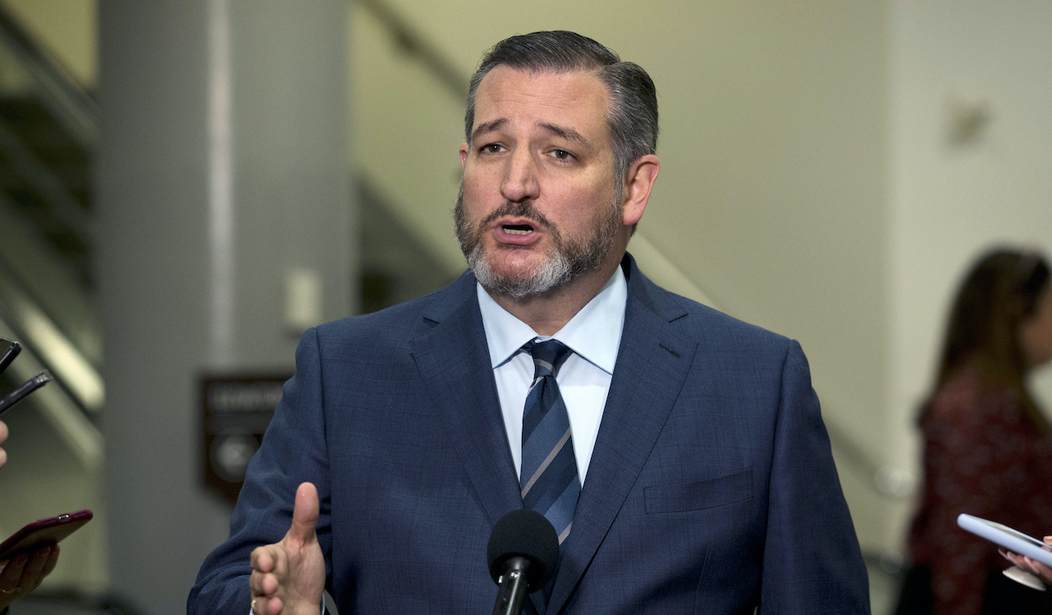From Mission Impossible to Transformers, the U.S. military’s vast expertise and array of equipment are part and parcel of the moviegoing experience. The partnership between the Department of Defense (DOD) and Hollywood started decades ago and continues to benefit both parties as well as millions of moviegoers. If Sen. Ted Cruz (R-Tex.) gets his way, the DOD – and other federal agencies – will face great difficulty advising filmmakers and renting out their buildings and equipment to creators trying to accurately depict the armed forces. Sen. Cruz’s proposed “Stopping Censorship, Restoring Integrity, Protecting Talkies” (SCRIPT) Act would bar studios from filming on bases and using equipment such as fighter jets if the studio in question edited any other film or show for screening in China. This all or nothing mandate would wreak havoc on film production, deprive the U.S. armed forces of a free, valuable recruiting tool, and bolster bureaucracy at the expense of freedom of expression. The only thing that “talkies” need protection from is overzealous legislators and regulators.
Even to a film or television buff, the extent to which the U.S. government lends a helping hand in production can be surprising. Pentagon assistance for shows such as “NCIS” or “Hawaii 5-0” makes sense, but taxpayer-funded equipment also shows up on fan-favorites like “Jeopardy” and “The Price is Right.” Far from subsidizing these endeavors, taxpayers benefit on net from, say, a pivotal scene of a movie taking place at Fort Meade or the Alexander Hamilton U.S. Custom House. The General Services Administration notes, “Filming and other special event space rentals help support federal preservation goals by generating revenue to keep historic federal buildings occupied, in good repair, and economically viable while contributing to their use and enjoyment by the public. Location fees support the care of this magnificent inventory of historic courthouses, custom houses, and federal buildings…” Meanwhile, film directors win by giving their works a veneer of legitimacy and credibility using locations and equipment that they otherwise would have to spend millions of dollars building.
But, if Sen. Cruz gets his way, this happy arrangement between taxpayers, government officials, film directors, and moviegoers could soon fall apart. Sen. Cruz is reasonably concerned about the threat of Chinese censorship on Hollywood productions, and apparently the last thing he wants is for government agencies to implicitly support such schemes. While it’s important to call attention to the Chinese Communist Party’s attempts to bully U.S. businesses, Sen. Cruz’s approach would merely import Chinese tactics by bullying film producers here at home.
Recommended
It also won’t be effective. If deprived of U.S. government cooperation, the studios’ most logical response would be to seek assistance from foreign governments and film overseas like they did with the 2014 film Fury, which was shot in Hertfordshire, England at Bovington Airfield. There is no reason to jeopardize American jobs and tax revenue in return for some cheap election season rhetoric. Such a scenario lays bare how badly the SCRIPT Act misfires.
Moreover, if production moves abroad, taxpayers would also have to foot the bill for diminished building upkeep revenue and subsidize new Department of Commerce reporting requirements because, under the SCRIPT Act, the agency would have to keep tabs on studios operating in China.
This is especially counterproductive given how lucrative the Chinese market can be for some U.S. films. Chinese audiences accounted for more than a fifth of Avengers: Endgame's $2.8 billion revenue. Indeed, U.S. films and television shows are one of the country’s most successful global exports, accounting for $16.3 billion. That’s a win for taxpayers as local communities around the country benefit from production company investment and tax dollars. For example, Avengers: Endgame was filmed in Georgia, where, according to the Governor’s office, the film industry accounted for $9.5 billion of economic activity in fiscal year 2018. When Chinese consumers spend money on American films and TV shows, it’s the U.S. economy that ultimately benefits. The SCRIPT Act would spell serious trouble for industry-supported jobs and taxpayer revenue, all in the name of “making China pay.”
And, in the case of Avengers: Endgame, it turns out the U.S. military didn’t need legislative mandates in order to decline to cooperate with Marvel during production. They made that choice not because of concerns about Chinese censors, but because, “the Defense Department didn't think a movie about superheroes, Norse Gods and intergalactic invasions was sufficiently realistic in its treatment of military bureaucracy.”
The armed forces should be the ones to decide when and how they cooperate with filmmakers – not Ted Cruz’s political advisors. Taxpayers and movie buffs deserve better than an expensive, legislative flop. Sen. Cruz’s legislation should end up on the cutting room floor rather than walking the red carpet.
Ross Marchand is the Vice President of Policy for the Taxpayers Protection Alliance.

























Join the conversation as a VIP Member